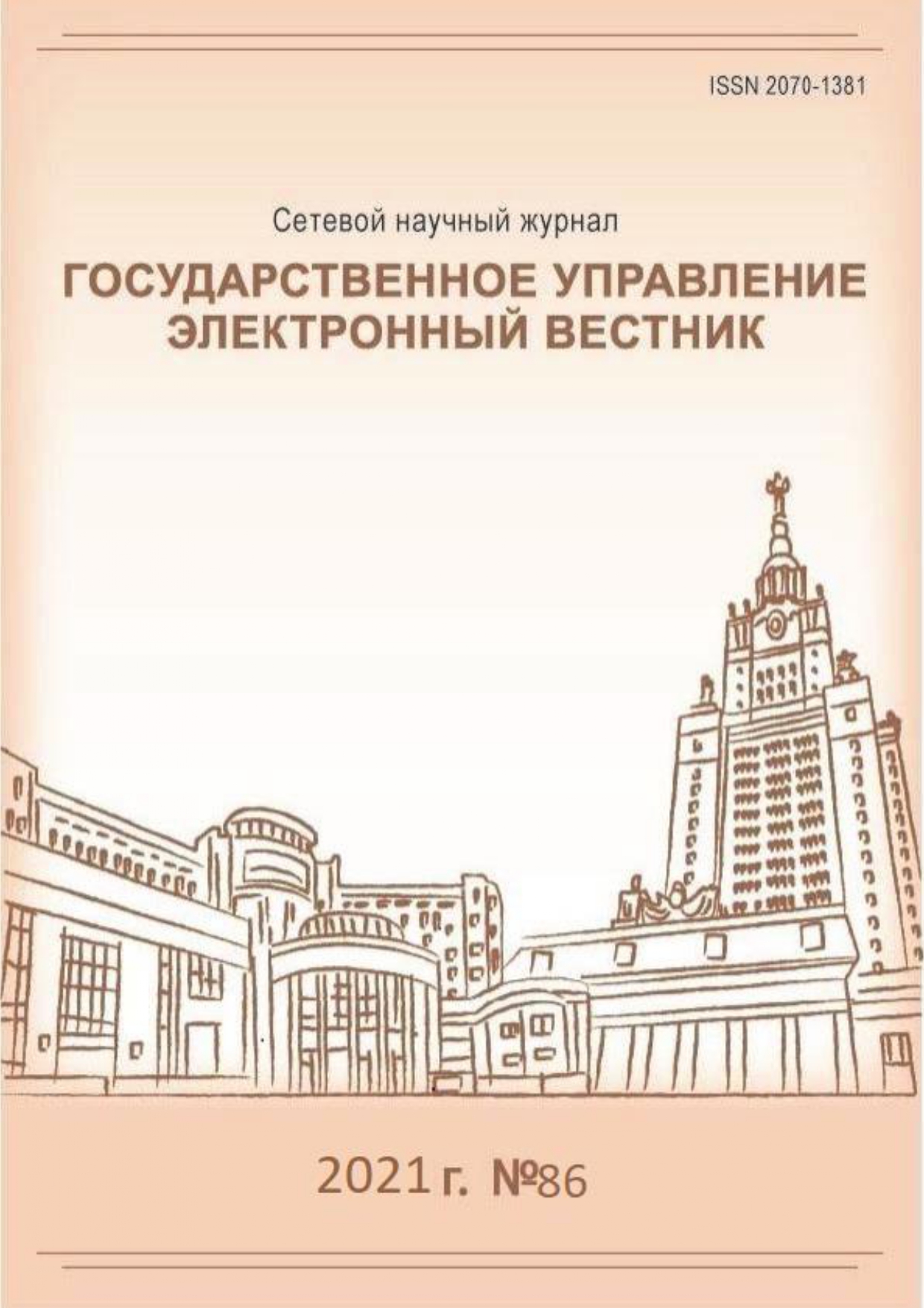Понятие хозяйствующего субъекта и его роль в развитии российской промышленности
Ключевые слова:
Промышленные предприятия, хозяйствующий субъект, субъект предпринимательской деятельности, хозяйственная деятельность, экономический ростАннотация
Развитие экономических отношений в России обусловило необходимость изучения научных идей и подходов, рассматривающих функционирование хозяйствующих субъектов. В современной научной литературе весьма широко рассматривается такая категория хозяйствующего субъекта. Достаточно часто авторы отождествляют ее с понятием «субъект предпринимательской деятельности». При этом, используя данный термин, авторы не раскрывают его сущность и содержание. В статье определены и охарактеризованы основные подходы к определению понятия «хозяйствующий субъект», исследуются основные оценки этого термина, раскрывается роль представителей промышленного кластера в экономическом развитии страны. Целью исследования является теоретическое обоснование существующих подходов к рассмотрению понятия «хозяйствующий субъект» и определение его роли в развитии современной промышленности России. Для достижения поставленной цели были использованы диалектический, исторический и системный методы исследования экономических отношений хозяйствующих субъектов в условиях трансформации экономики. В процессе исследования авторы раскрывают причинно-следственные связи влияния хозяйствующих субъектов на развитие экономики и промышленности России. Таким образом, подтверждается тезис о том, что хозяйствующие субъекты осуществляют не только предпринимательскую, но и хозяйственную деятельность. Кроме того, хозяйствующие субъекты, относящиеся к промышленным предприятиям, оказывают заметное влияние на развитие производственных отношений, а также на укрепление смежных отраслей и межотраслевых связей. Благодаря промышленным предприятиям ускоряется темп экономического развития страны и научно-технический прогресс, улучшается благосостояние народа. Полученные выводы могут быть использованы в дальнейшем при исследовании национальной промышленности в условиях трансформации российской экономики.
Библиографические ссылки
Белых В.С., Звездина Т.М. Понятие субъектов малого и среднего предпринимательства в науке предпринимательского права // Предпринимательское право. 2018. № 2. С. 4–10.
Губин Е.П. Теория и практика правового регулирования предпринимательской деятельности: соотношение и взаимодействие // Предпринимательское право. 2018. № 1. С. 3–9.
Еделев Д.А., Татуев А.А. Функциональная роль промышленности в развитии национальной экономики // Современная научная мысль. 2013. № 6. С. 129–137.
Зыков В.В., Леонтьева А.Г. Фирма как хозяйствующий субъект и объект экономической безопасности // Теория и практика общественного развития. 2014. № 17. С. 41–46.
Клеандров М.И. Территории с особым правовым режимом хозяйствования в системе предпринимательского права // Предпринимательское право. 2019. № 4. С. 21–31.
Кузнецов К.И. Понятие «хозяйствующий субъект» в предпринимательском праве // Право и экономика. 2018. № 12(370). С. 18–25.
Мартемьянов В.С. Хозяйственное право: история и современность // Известия высших учебных заведений. Правоведение. 1992. № 2. С. 100–103.
Машкин Н.А. Хозяйственное право в механизме управления рыночной экономикой. М.: Ид-во РЭУ им. Г.В. Плеханова, 2016.
Спиридонова А.В. Координация деятельности хозяйствующих субъектов по российскому антимонопольному законодательству // Вестник Омского университета. Серия: Право. 2008. № 3(16). С. 162–164.
Фролова Н.В. Современные проблемы правового обеспечения статуса хозяйствующих субъектов нефтедобывающего комплекса // Законодательство и экономика. 2005. № 10. С. 22–29.
Яндиев М.И. Теория финансов: необходима корректировка восприятия // Финансы. 2013. № 5. С. 60–64.
Baudry B., Chirat A. John Kenneth Galbraith et l’évolution des structures économiques du capitalisme // Revue Économique. Vol. 69. Is. 1. 2018. P. 159–187.
Hammer M., Champy J. Reengineering the Corporation: A Manifesto for Business Revolution. New York: HarperBusiness, 2001.
Singer A.A. The Form of the Firm: A Normative Political Theory of the Corporation. New York: Oxford University Press, 2018.
Spigel B. The Relational Organization of Entrepreneurial Ecosystems // Entrepreneurship Theory and Practice. 2017. Vol. 41. Is. 1. P. 49–72. DOI: https://doi.org/10.1111/etap.12167.
Womack J.P., Jones D.T. Lean Thinking: Banish Waste and Create Wealth in Your Corporation, [2nd ed.]. New York: Free Press, 2003.
Загрузки
Опубликован
Похожие статьи
- Шкарина Вера Сергеевна, Интеллектуальный капитал и система менеджмента в организациях креативной экономики , Государственное управление. Электронный вестник: № 106 (2024)
- Молчанов Игорь Николаевич, Образование и экономический рост: настоящее и взгляд в будущее , Государственное управление. Электронный вестник: № 108 (2025)
- Алехин Михаил Юрьевич, Мамедова Лейла Эльдар гызы, Использование элементов маржинального анализа при управлении трансформацией структуры активов судостроительного предприятия , Государственное управление. Электронный вестник: № 109 (2025)
- Панова Екатерина Андреевна, Преодоление кадрового дефицита на малых и средних промышленных предприятиях , Государственное управление. Электронный вестник: № 113 (2025)
- Коваленко Александр Александрович, Формирование модели социального контроллинга инновационной деятельности предприятия , Государственное управление. Электронный вестник: № 111 (2025)
- Панова Екатерина Андреевна, Влияние санкций на деятельность российских производственных предприятий , Государственное управление. Электронный вестник: № 96 (2023)
- Вагин Михаил Сергеевич, Палкина Елена Сергеевна, Экономико-математическая модель оценки синергетического эффекта от совместного внедрения бережливого производства и цифровизации на промышленном предприятии , Государственное управление. Электронный вестник: № 112 (2025)
- Данилюк Елена Сергеевна, Сопоставление полномочий органов местного управления Республики Беларусь с показателями оценки эффективности их работы , Государственное управление. Электронный вестник: № 87 (2021)
- Швыряев Павел Сергеевич, Киберпреступность в России: новый вызов для общества и государства , Государственное управление. Электронный вестник: № 89 (2021)
- Молчанов Игорь Николаевич, Молчанова Наталья Петровна, Планирование в России: истоки и перспективы , Государственное управление. Электронный вестник: № 90 (2022)
Вы также можете начать расширеннвй поиск похожих статей для этой статьи.




